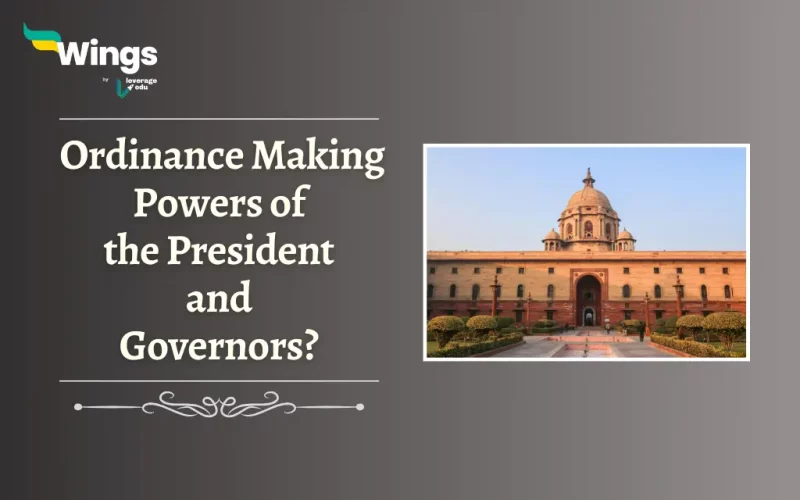The Indian Constitution empowers both the President and Governors of states to make ordinances under specific circumstances. Moreover, these ordinances act as temporary laws until the legislature can pass a proper law. Furthermore, it is important to remember that the ordinance-making power is a temporary solution which is meant for urgent situations. Additionally, the legislature remains the primary body for lawmaking, and ordinances eventually require legislative approval for permanent validity. Read on to learn more in detail about the Ordinance Making Power of President and Governor in India!
Ordinance Making Power of the President of India
Article 123 of the Indian Constitution grants the President of India the authority to issue ordinances. This power comes into play when both houses of Parliament are not in session. There are 2 essential conditions for the President to make an ordinance:
- Necessity for Immediate Action: The President must be satisfied that a situation exists where immediate action is essential. Moreover, this could be due to unforeseen circumstances or urgent legislative needs.
- Subject Matter: The ordinance can only address matters within the scope of the Parliament’s legislative ability. However, it cannot be used on subjects reserved for State legislatures.
Furthermore, Ordinances issued by the President have the same force as an Act of Parliament. However, they are temporary and cease to exist after 6 weeks from the date the Parliament reassembles. Additionally, the Parliament can either approve the ordinance, thereby making it a permanent law or reject it.
Also Read: What is Constitutional Morality?
Ordinance Making Power of the Governor in India
Similar to the President, Governors of States also possess the power to make ordinances under Article 213 of the Indian Constitution.
- This authority applies when the State legislature is not in session (either unicameral or bicameral).
- The Governor, like the President, must be convinced of the need for immediate action on a specific issue before issuing an ordinance.
In addition, Ordinances promulgated by the Governor have the same legislative authority as an Act passed by the State legislature. However, they too are temporary and lapse 6 weeks after the State legislature reconvenes. Thus, the legislature can then choose to ratify the ordinance as a law or invalidate it.
Related Blogs
Lastly, we hope you liked our blog and gained an understanding of the Ordinance Making Power of President and Governor. Moreover, you may even read more blogs and empower yourself with knowledge regarding Civics and Polity!
 One app for all your study abroad needs
One app for all your study abroad needs













